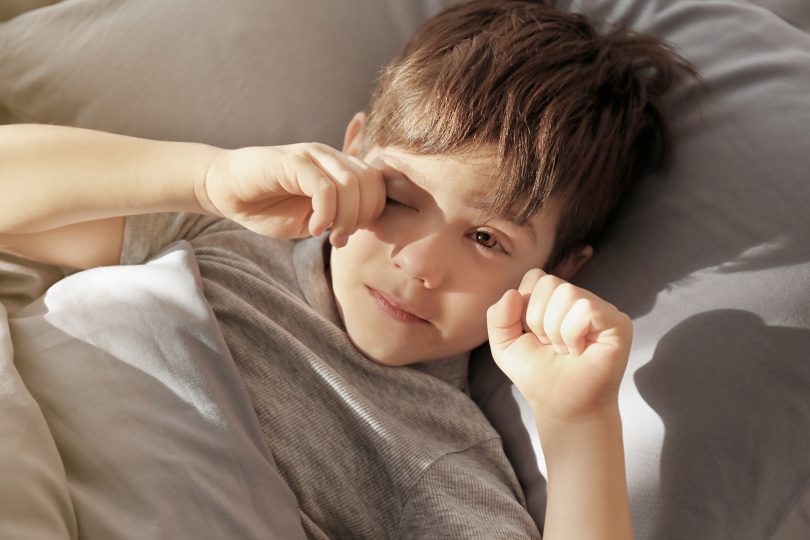If your child has pink, itchy eyes with a discharge, that’s a pretty clear sign: Your child has pink eye.
Pink eye is one of the most common and treatable eye conditions in children, according to the National Eye Institute. Adults can get it too, most often by catching it from our kids.
In other words, it’s also really contagious. So here’s what parents need to know about how to prevent—and treat—pink eye.
Preventing Pink Eye
Dr. Donna Moore, a pediatrician at the Children’s Hospital of Georgia, says she sees pink eye most often in the fall and winter—just when cold and flu season hits.
If you want to keep your child from getting pink eye, do the same things you’d do to help prevent a cold or the flu, she said. At school, teachers can wipe off shared desks, tables and doorknobs, use Lysol, and clean toys and other shared items. Parents can do the same level of cleaning and sanitizing at home.
Pink eye can spread fast through direct contact, such as someone with pink eye touching their eye, nose or mouth, then putting that hand on an object that someone else picks up or touches.
“Most important of all, handwashing cannot be stressed enough,” said Moore. “Also try to teach children to cough into an elbow,” or sneeze into a tissue. That’s because—fun fact—pink eye germs can also spread through coughing or sneezing.
Is it pink eye?
Anytime your child has eye irritation that makes their eyes pink and uncomfortable, technically that’s pink eye, said Dr. Moore.
So allergies can cause very itchy, pink eyes. So can some kind of eye irritant, from dust to actual eye injury. Talk to your doctor if you’re worried—but definitely go in for a checkup if your child has hurt his or her eye.
“But when parents talk about pink eye, they’re usually thinking more about the infectious kind,” said Moore.
Infectious pink eye can be caused by either viruses or bacteria, and depending on the cause, symptoms can be slightly different:
- Viral pink eye usually features a thin, watery discharge.
- Bacterial pink eye usually has a thicker discharge. “Parents sometimes will say their child wakes up with their eyes glued shut” from the discharge, said Moore.
Otherwise, both kinds of pink eye also may feature these symptoms:
- Painful, itchy or “burning” eyes
- Swelling
- Feeling like something’s in one or both eyes
- Being sensitive to bright light
Although sometimes kids have fever too, it’s not common with pink eye, said Moore.
Clear eyes ahead
When it comes to treating pink eye, if it’s the viral kind, unfortunately, antibiotics don’t help, said Moore: “It’s the same as with the cold or flu. If it’s viral, it just needs to run its course.”
That means your child might have viral pink eye for seven to 10 days.
But to help make kids more comfortable, Moore suggests:
- Using over-the-counter wetting drops or an eyewash, if your child will let you
- Cool or warm compresses
Still, it’s a good idea to bring your child in for a checkup, even if you think it’s the viral kind that doesn’t need antibiotics. That’s because your pediatrician can confirm whether it’s viral or bacterial, and can also see if your child has other infections related to pink eye, such as an ear infection, for example. And if your child complains of severe eye pain, he or she should definitely be seen.
For bacterial pink eye, Moore prescribes antibacterial ointment or eye drops, depending on the age of the child and how comfortable or willing they might be to use eye drops. Most times, bacterial pink eye will start clearing up in a couple of days after starting treatment.
Frequently Asked Questions
One question parents have is: Can my child go to school? The answer is yes, said Moore, but schools may have a requirement that children be treated for 24 hours before coming back to school. “We can provide those notes,” she said.
Parents may also wonder if they can use leftover eye drops from someone else in the household—but Moore said that’s not recommended.
Finally, if parents do only one thing to help prevent pink eye, it should be this: “Reinforce with children to wash their hands, to keep their hands from touching their face, and not to share personal items, such as towels, to help minimize exposure.”




